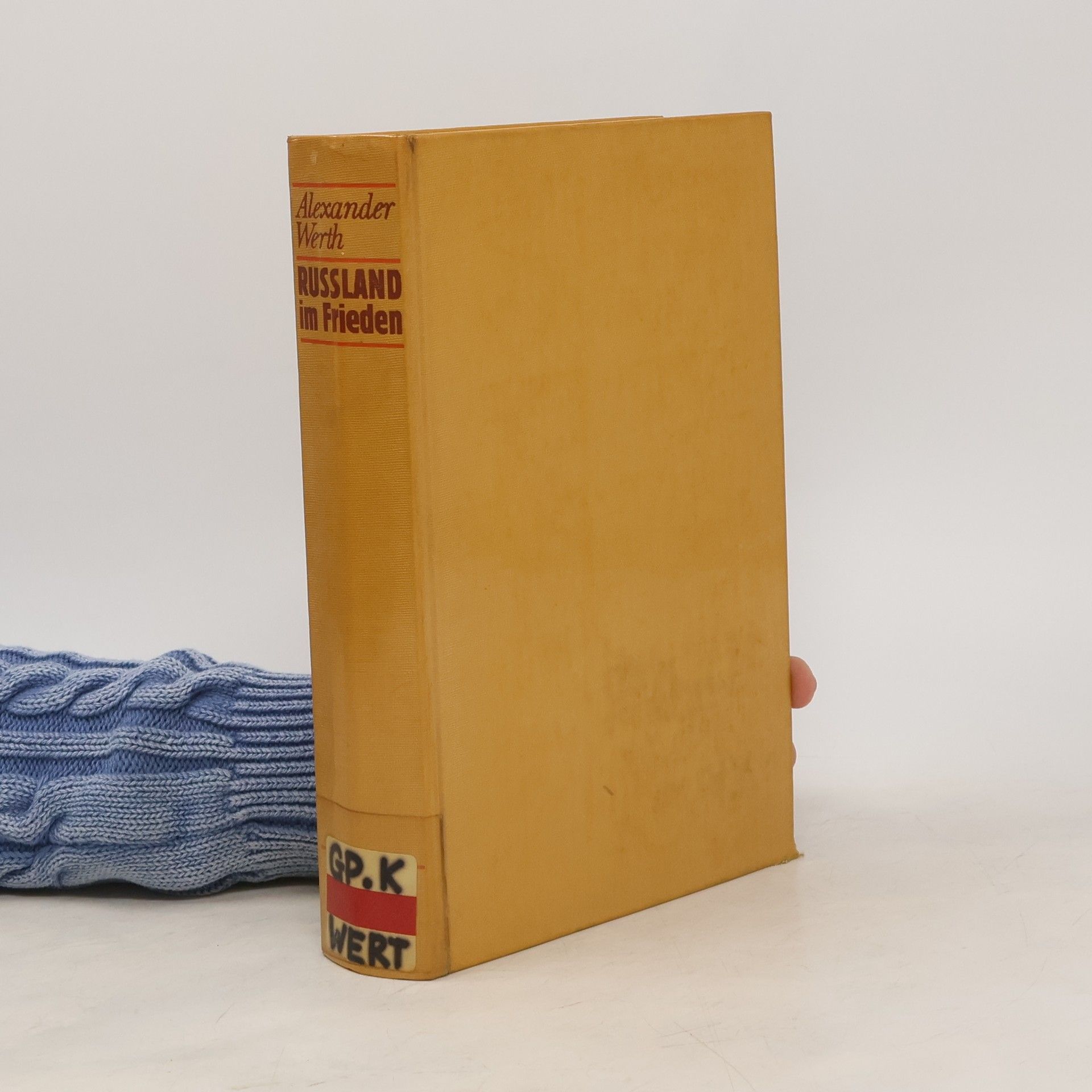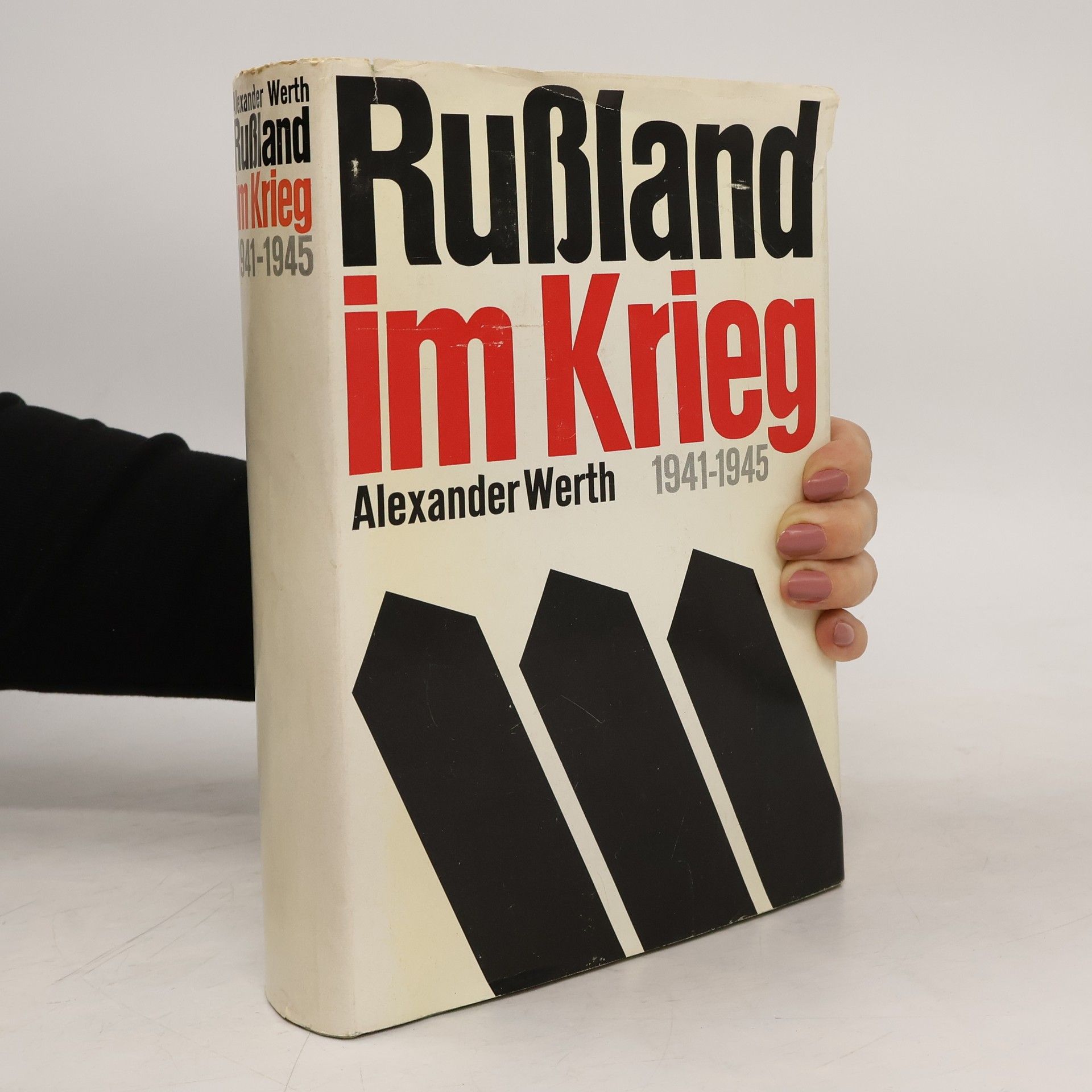Alexander Werth Livres
Alexander Werth était un écrivain, journaliste et correspondant de guerre d'origine russe, naturalisé britannique, dont l'œuvre se concentre sur la France d'avant-guerre et sur la Russie pendant la Seconde Guerre mondiale, en particulier sur la bataille de Stalingrad et le siège de Leningrad. Sa maîtrise du russe, combinée à ses accréditations de correspondant de la BBC, lui a donné un accès sans précédent à la vie soviétique en temps de guerre. Le reportage de Werth offrait un regard franc et en coulisses sur cette période, offrant aux lecteurs une perspective profondément éclairée sur des événements historiques cruciaux.



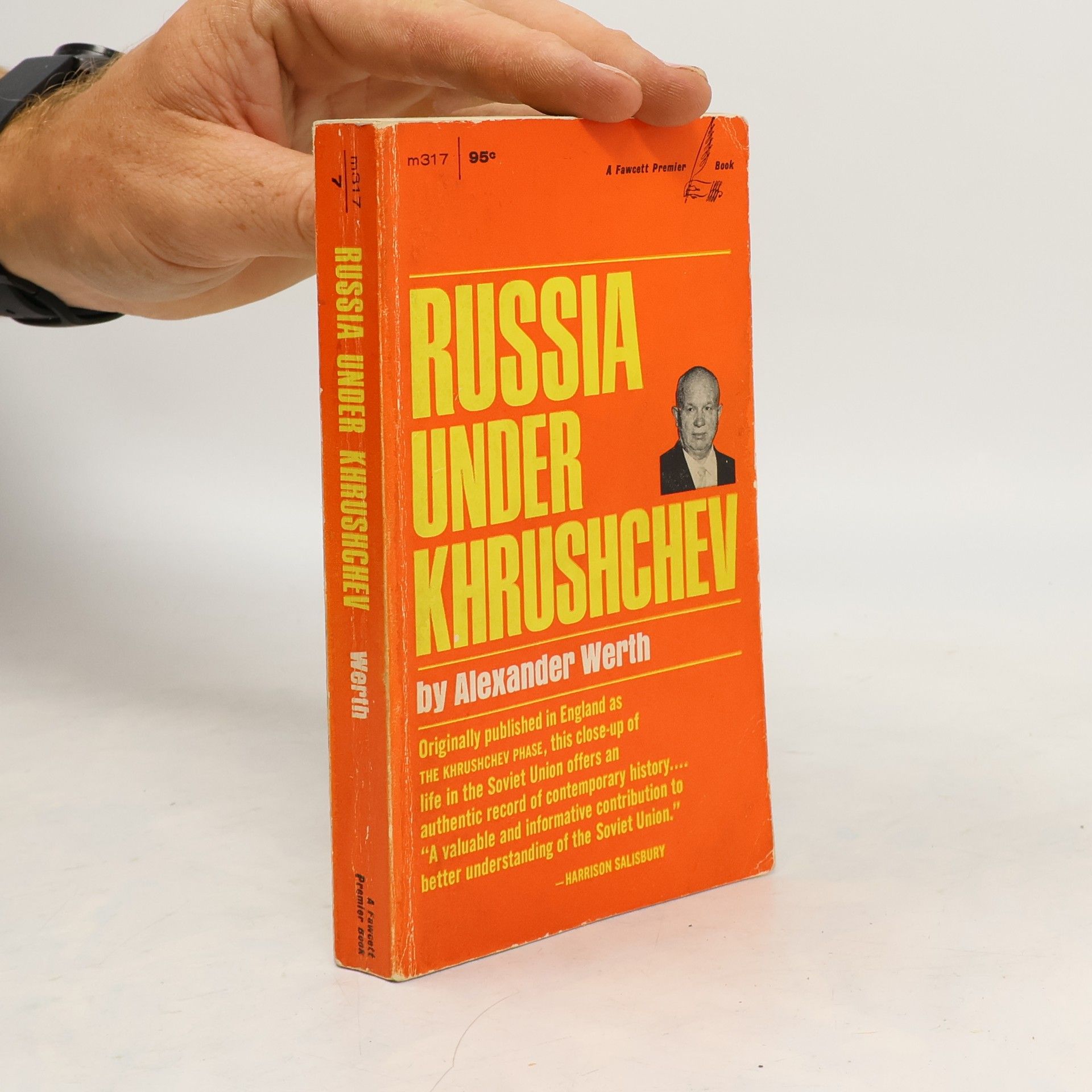
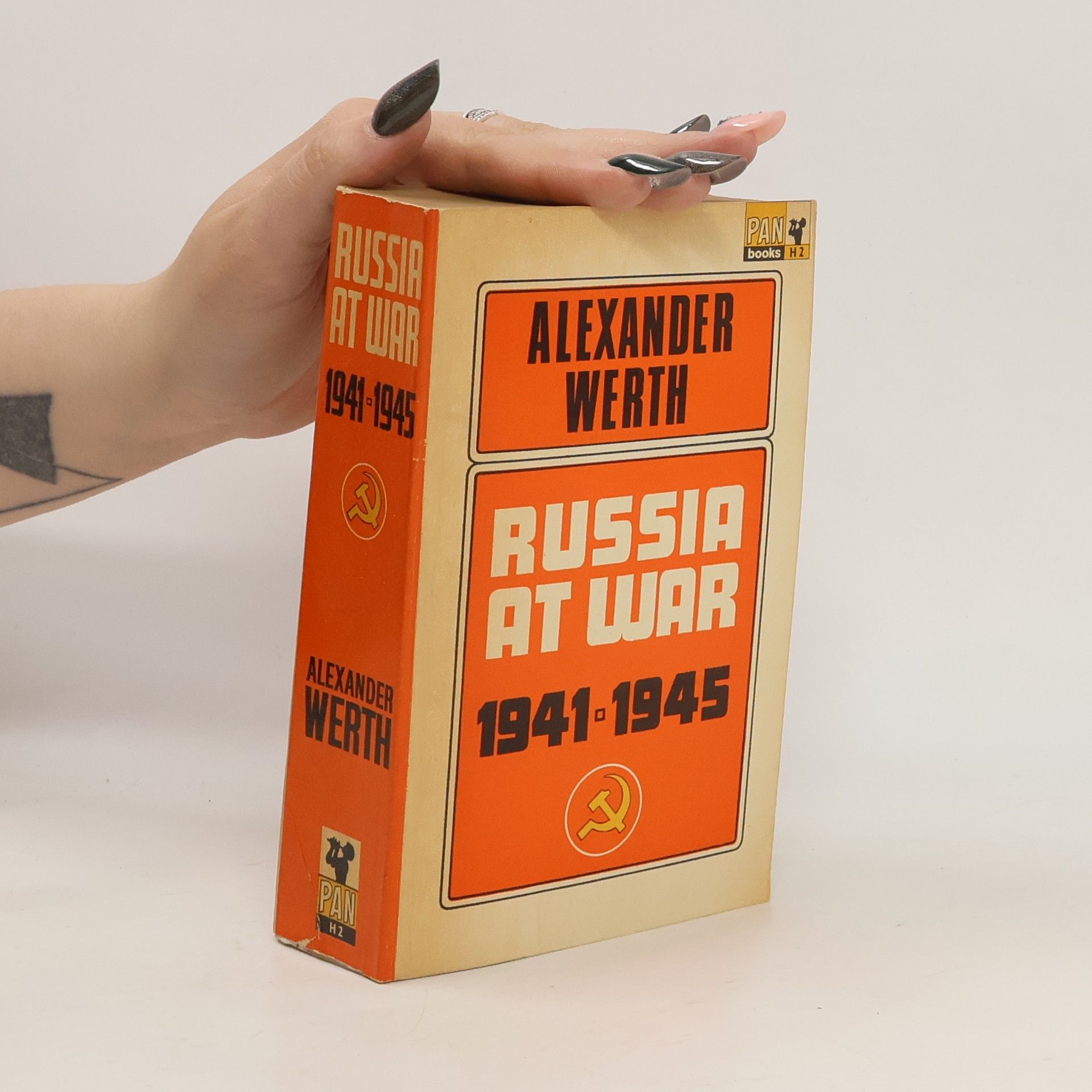
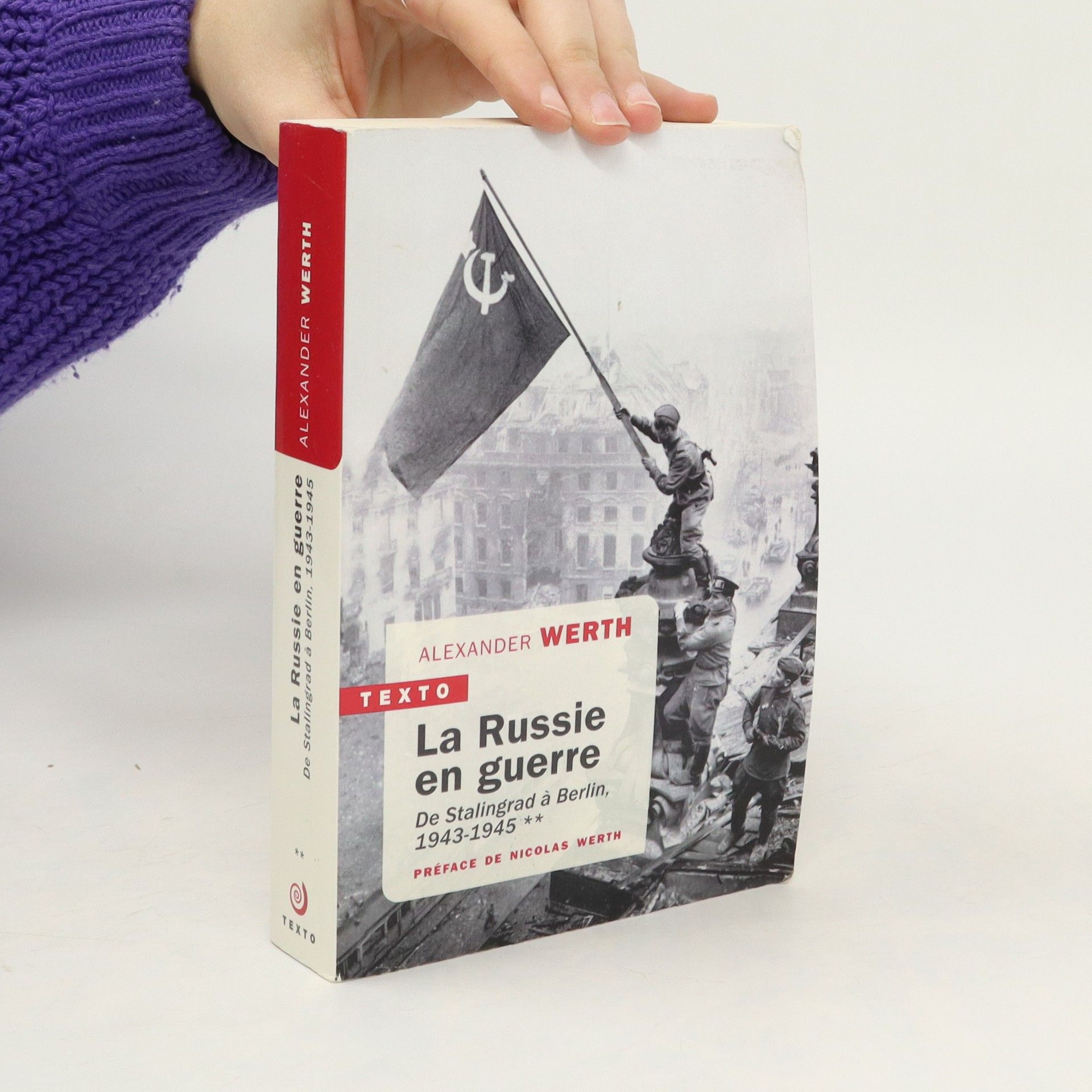

La Russie en guerre
- 610pages
- 22 heures de lecture
Le second tome de La Russie en guerre s'ouvre sur les premières lueurs de la victoire. Après la bataille de Stalingrad s'engage une fantastique campagne militaire qui conduira les troupes soviétiques jusqu'à la victoire finale à Berlin. Apre triomphe, toutefois : les pertes humaines sur les champs de bataille sont terribles, les Leningradois ont enduré un long blocus et, à Maidanek, c'est l'atrocité du génocide qui est découvert. Autant de souffrances qui constituent l'expérience de guerre vécue par toute une nation, militaires et civils confondus.
Od paktu po Stalingrad
Rusko vo vojne 1941 - 1945. 1. časť
Autor nerozvíja len obrazy bojov a strategické plány všetkých zúčastnených strán, ale nazerá aj za kulisy diplomatickej scény, kde sa pripravovalo povojnové usporiadanie a rozdelenie sveta. A.Werth sa citlivo a objektívne zaoberá problémami: ako je problém Poľska a ostatných štátov, ktoré sa dostali do sféry sovietskeho vplyvu, vzťahov medzi Stalinom a jeho vojnovými spojencami, de Gaullovho postavenia, z ktorého vyplynuli mnohé stránky jeho neskoršieho konania, problém Japonska v poslednej fáze vojny, ako aj povojnové obdobie a jednotlivé osudy mnohých drobných ľudí...

